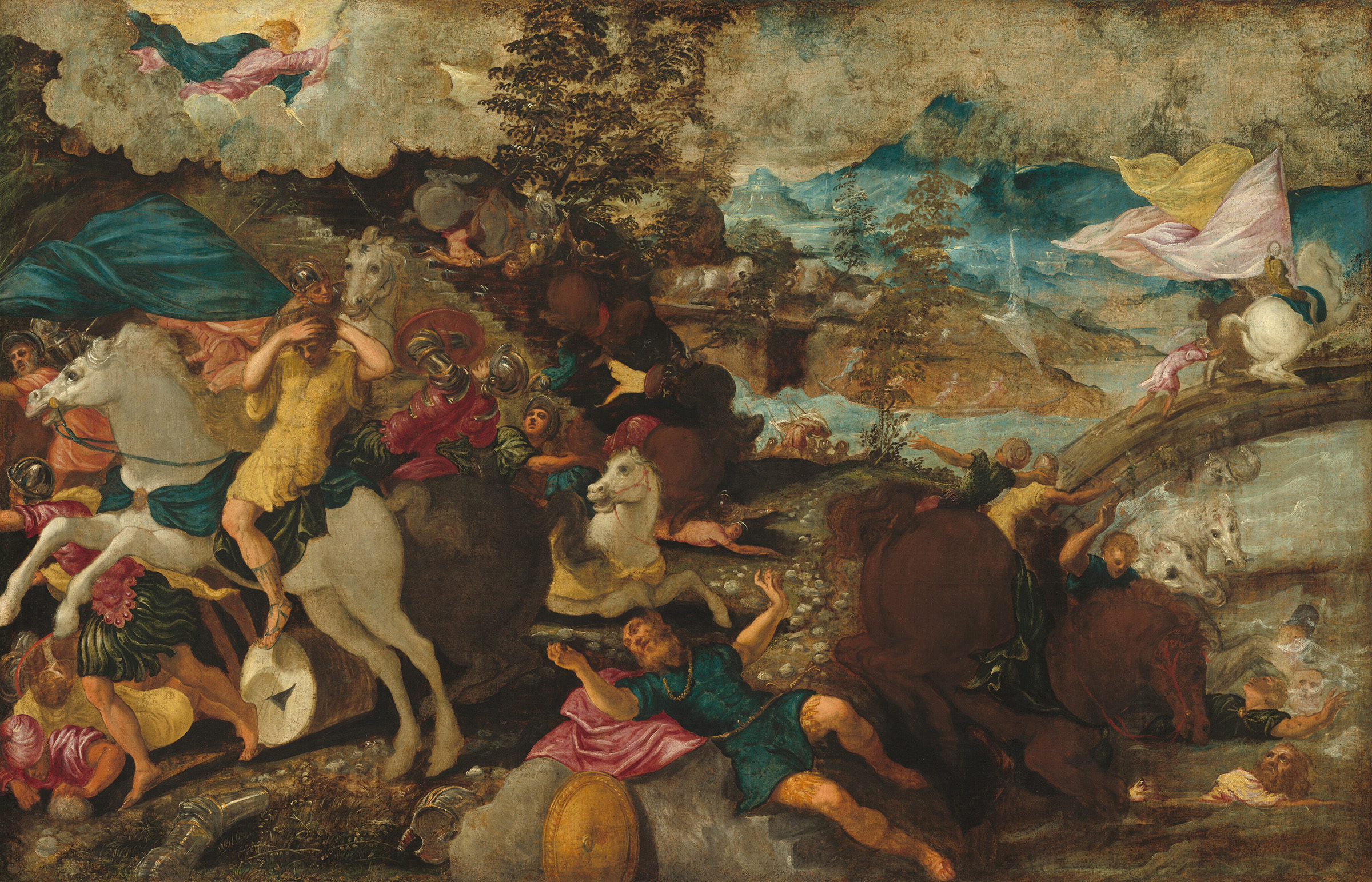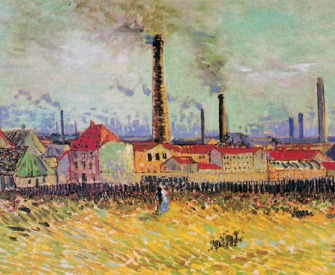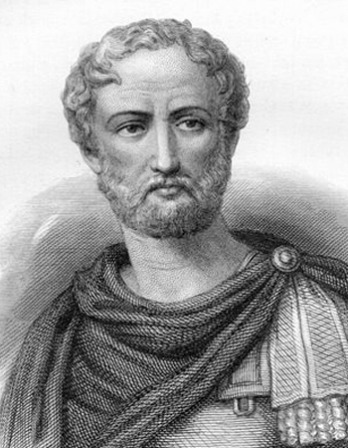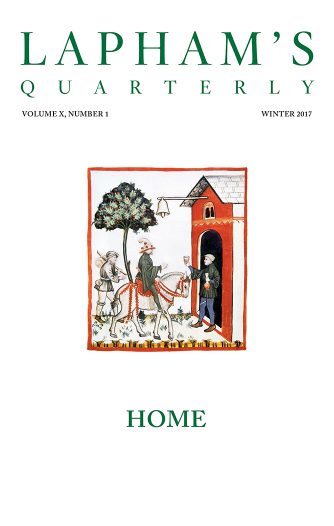If I had been born a man, I would have conquered Europe. As I was born a woman, I exhausted my energy in tirades against fate and in eccentricities.
—Marie Bashkirtseff, 1884Taxes Due
William Ophuls mines the topsoil.
The laws of thermodynamics, among the most basic known to science, constitute a natural tyranny against which resistance is useless. They guarantee that the human “conquest” of nature is, and always will be, a Pyrrhic victory. But what are these laws that so decisively set aside the human pretension to technological dominance?
The first law states that energy is always conserved. It can change form, but it can neither be created nor destroyed. However, the second law states that entropy tends to increase (where entropy is a measure of chaos, randomness, and disorder). Energy tends to decay into less and less useful forms. There may be just as much total energy after the transformation as before, but the quality of that energy will be poorer.
In their purest scientific form, the laws of thermodynamics are concerned with energy as heat and do not seem at first glance to have much to do with daily life. In fact, they govern every aspect of the natural and human economies.
One way of restating the second law, often called the entropy law, is to say that matter-energy transformations cannot be reversed; time’s arrow flies in only one direction. When Humpty Dumpty takes his great fall, all the king’s horses and all the king’s men can never put him together again. His material “energy” has been irretrievably lost. Similarly, when ice melts in a glass of lemonade, the cold “energy” stored in the ice cubes dissipates into the environment, never to be recaptured. Vice versa for hot objects. Our sun is slowly but surely radiating away its concentrated energy. Approximately five billion years from now, it will exhaust its fuel and eventually fade into a dim ember.
Civilization expedites entropy. Agricultural production is the foundation of civilized life. But the word production is a misnomer. What humans actually do is mine the topsoil. The product is food for human consumption—but the by-product is erosion, compaction, leaching, and other damage to the soil’s vitality and integrity. The nutrients in the food are not usually returned to the land but excreted into latrines and sewers, whence they are dispersed into rivers, lakes, and oceans, never to be recaptured except in the negative form of pollution.
Over the centuries, farmers have learned to counteract the worst entropic consequences of agriculture by various means: crop rotation, fallowing, terracing, manuring, and the like. These measures do indeed slow down the losses. Given favorable circumstances, it is possible to construct systems of sustainable agriculture that keep entropic losses to a bare minimum. Such systems are necessarily labor-intensive and scrupulously conservative—more like horticulture than our usual notion of agriculture.
In most cases, however, conditions are not favorable. Since the land in its natural state is incapable of meeting increased demand, external energy must be applied to boost yields artificially. This development reaches its apex in industrialized agriculture, which is a biological machine that turns petroleum into calories at a ratio of approximately ten to one. In other words, the entropic price of modern man’s bowl of porridge is the degradation of at least ten times as much energy as is contained in the bowl itself.
Or take one of the great inventions of civilization: the bath. Whether it was the Roman thermae, the Arab hammam, or the traditional Japanese furo, it was heated with wood. But in the process most of the energy in the wood was wasted. That is, it turned into smoke, ashes, and heat—some of which did the work of making hot water, but most of which escaped up the chimney. And even the useful heat in the bathwater was soon dissipated into the atmosphere, just like the cold in the glass of lemonade. In addition, it took matter and energy to build the baths in the first place and to maintain them thereafter (not to mention aqueducts, roads, and other supportive infrastructure).

The Conversion of Saint Paul, by Tintoretto, c. 1544. National Gallery of Art, Samuel H. Kress Collection.
Technological improvements actually increase thermodynamic costs. Take the substitution of the automobile for the horse. To make a horse requires a modest investment in pasture, water, and fodder for the two to three years from conception until the horse can work. But to make a car requires not only many direct inputs—steel, copper, fuel, water, chemicals, and so forth—but also many indirect ones such as a factory and labor force as well as the matter and energy needed to sustain them.
The technological leap represented by the computer is no different. Its partisans may believe that it will be the instrument of humanity’s final liberation from the tyranny of nature, but a quick glance at the enormous quantity of embodied energy in each computer and in the systems that support it, plus the major energy requirements needed to operate networks, testify otherwise. The more humanity resorts to technology, the more it expedites entropy. It is vital to understand that technology is not a source of energy. It is not a fuel in its own right, only a means for putting fuel to work or transforming one energy resource into another. If the quantity or quality of energy resources dwindles, the power of technology declines along with them.
One of the best ways of understanding the relationship of energy, entropy, and technology is by examining economic systems in terms of net energy—that is, how much energy remains after subtracting the cost of effecting the transformation. The technical term is energy return on investment, or EROI (also known as EROEI for energy return on energy invested). As we have seen, the EROI of industrial agriculture is negative: it takes ten units in to get one unit out. The return on other technologies is not so easy to calculate. How does one value the advantages of the automobile against its very high entropic costs, except by saying that the horse is far less expensive in thermodynamic terms?
In some cases, however, there is a clear numerical progression. It used to be that it took the energetic equivalent of only one barrel of petroleum to obtain a hundred barrels—that is, an EROI of one hundred to one. But this ratio has now declined to roughly fifteen to one and is destined to fall even further, because the remaining resources are on the whole more difficult, dangerous, and expensive to extract and refine. Hence the mere quantity of a resource is not what is important. A billion barrels of oil in the ground may sound like a lot, but if it costs five hundred million barrels to extract and refine, then the net energy is only five hundred million barrels, and the EROI is just two to one.
Perhaps the best way to understand the impact of the entropy law on human affairs is to use a pointed analogy. Nature operates what is, in effect, an extremely onerous tax system. Every matter-energy transaction has to pay a thermodynamic tax that is greater by far than the value of the transaction itself. Nature taxes the conversion of coal into electricity at a rate of roughly 200 percent.
The tax is for the most part unseen, and it is not usually paid immediately. Or, to put it another way, some reap the benefits of the transaction and succeed in shoving the costs onto others: other species, other places, other classes, other generations pay the tax. Hence the tendency is for a civilization to continue developing despite an accumulating thermodynamic debt load. At some point, however, the taxman presents his bill. “Progress” then ceases, and the civilization finds itself in dire straits.
From Immoderate Greatness: Why Civilizations Fail by William Ophuls. Copyright © 2012 by William Ophuls. Used with permission of the author.
William Ophuls
From Immoderate Greatness. “Civilization is trapped in a thermodynamic vicious circle from which escape is well-nigh impossible,” Ophuls writes. “The greater a civilization becomes, the more the citizens produce and consume—but the more they produce and consume, the larger the increase in entropy…At some point, just as in the ecological realm, a civilization exhausts its thermodynamic ‘credit’ and begins to implode.” In 1977 Ophuls published his first major work, Ecology and the Politics of Scarcity, which suggests that democracy may be incapable of fostering a sustainable society.




